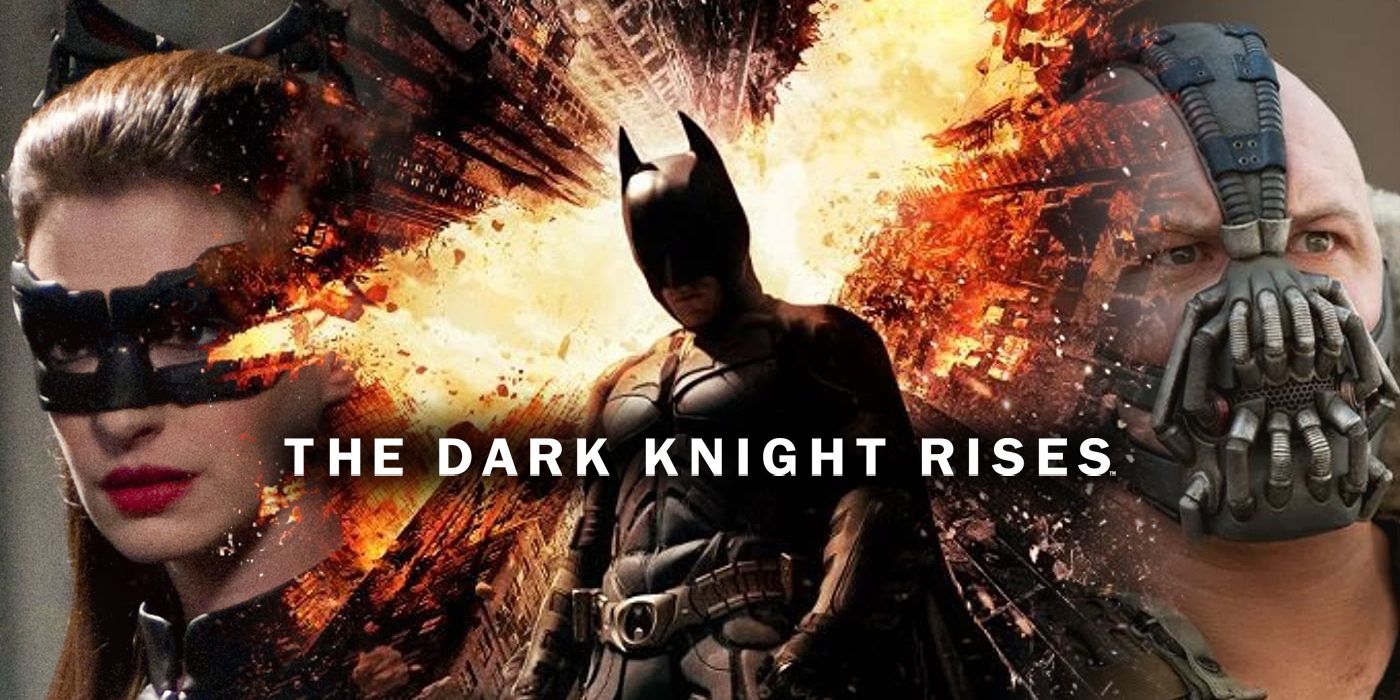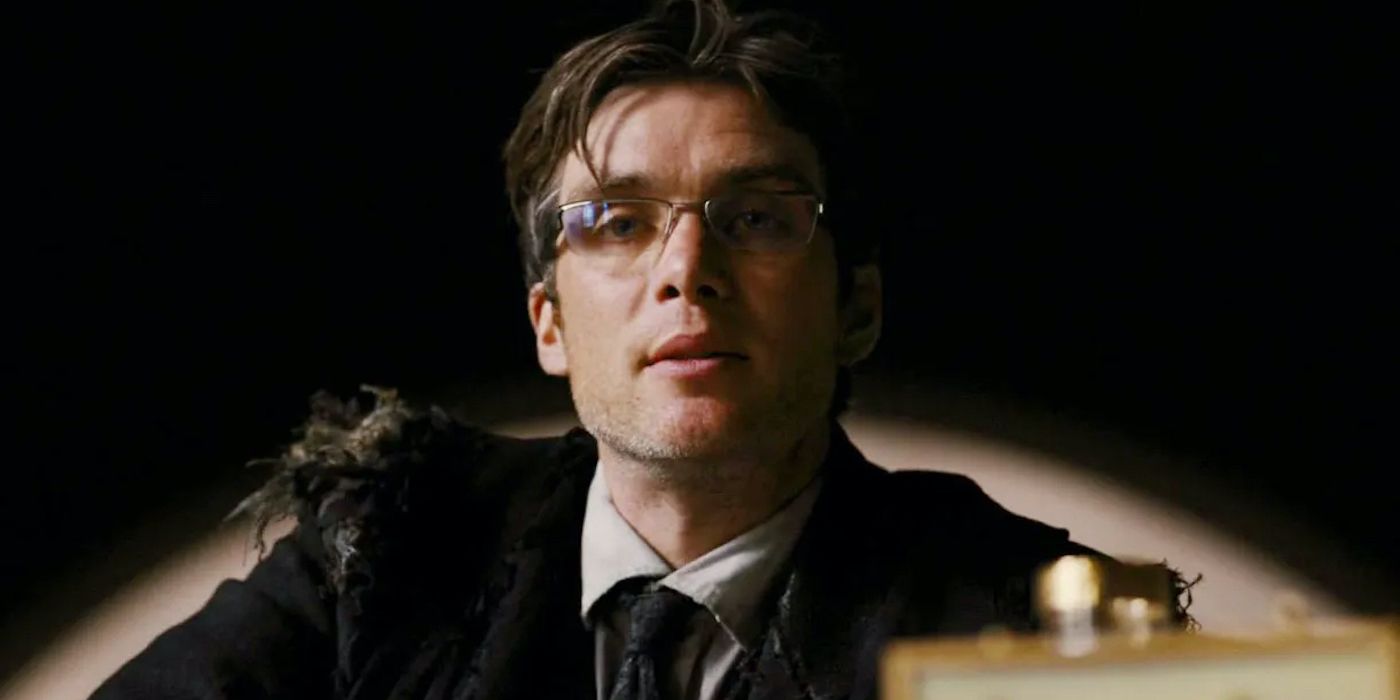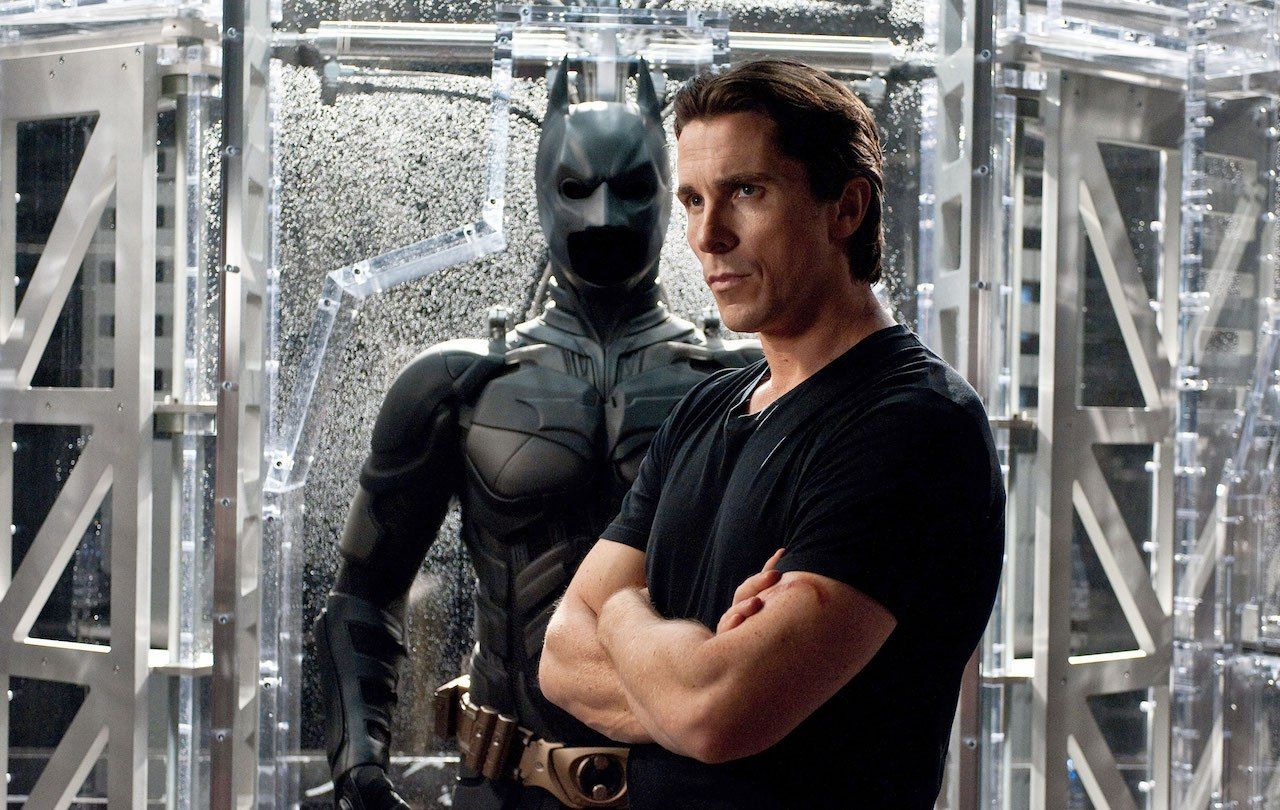Editor's note: The following contains The Dark Night Rises spoilers.The Dark Knight Rises is a useful film in Nolan’s filmography because it shows that he needs some kind of thematic through line to carry his picture. Even a remake like Insomnia benefits from an exploration of characters relying on lies in order to get through the day, and this exploration of self-deception remains a recurring theme in Nolan’s work. But when you get to The Dark Knight Rises, you have a bizarre mishmash of ideas that never cohere into any larger point. Nolan’s second-longest film to date after Interstellar, The Dark Knight Rises is a lot of movie, but it always feels kind of small in scope despite its pyrotechnics. Unlike Batman Begins, which uses fear as a central part of Batman’s origin story or The Dark Knight which is able to meld a story about the war-on-terror into a larger concept about the lies we use to keep society pacified, The Dark Knight Rises never seems particularly certain about its ideologies.
Take Bane (Tom Hardy) for example. What does Bane want beyond destroying Gotham? Even Ra’s al Ghul (Liam Neeson) said that he felt destroying Gotham was as a cleansing fire. His aspiration was to restore Gotham because the city had become too corrupt. This provided a good conflict with Batman (Christian Bale), who believed that his home wasn’t beyond saving. Bane, on the other hand, simply wants to create chaos but give Gothamites a false sense of hope. He’s a faux populist at best, but populism manifests in the relationship between demagogue and audience. It’s not enough to talk about giving Gotham back to the people when the same person is blowing up bridges and taking the city hostage. Setting aside that Bane’s true plan is to new nuke Gotham, he’s a largely uninteresting antagonist because he has no real dichotomy with Batman. The only reason we remember Bane is that Hardy gave him a goofy voice.
The film’s faux populism serves as a more of distraction than a concrete theme. All it adds up to is, “Class conflict is a thing!” but since blockbuster movies typically don’t portray economic inequality or poverty in any remotely real way, we basically have Selina Kyle (Anne Hathaway) as a stand-in for the anger of the 99% and there’s no follow through. Hathaway gives a great performance, but the film is largely at a loss with what to do with her other than have her be snarky, sneaky, and sexy. Like with Hardy, the performance is memorable, but the character doesn’t serve much of a thematic purpose other than moving the plot along (not to mention the long stretches where the character’s relevance evaporates because there’s no longer anything for her to do).
These frustrations coat the entirety of The Dark Knight Rises because it doesn’t seem to know how to close out Batman’s story. It starts from an interesting place about what do warriors do during peacetime and showing that Batman is rusty from despair and loneliness, but they never amount to anything. The crackling dynamic between Bruce and Alfred (Michael Caine) is gone and replaced with a series of lectures until Alfred disappears from the movie at the halfway point and isn’t seen again until the end. The movie sticks Gordon (Gary Oldman) in a hospital bed for over an hour and then has him team up with plot lubricant Blake (Joseph Gordon-Levitt), who is also forced to serve as the film’s conscience since the movie also doesn’t know what to do with Batman.
Even when the film tries to draw a line from Batman Begins to The Dark Knight Rises with the return of the League of Shadows and the twist that Miranda Tate (Marion Cotillard) is Talia al Ghul, The Dark Knight Rises falters by trying to reinvent Batman as an egalitarian notion. The more you try and impress upon the notion that Batman could be anyone, the less sense it makes. Set aside that not everyone has access to their own fighter jet, Batman Begins shows the rigorous training Bruce Wayne undergoes in order to become Batman. This isn’t like Spider-Man where a spider bites you, and suddenly you have powers, so you have to decide if you’re going to be a hero or not. If anyone can be Batman, then why was it necessary for Bruce to train with the League of Shadows in the first place? And if that was necessary isn’t Blake going to die within five minutes of becoming the new Batman?
The Dark Knight Rises remains Christopher Nolan’s worst movie because it isn’t about anything. It tries to be about a lot of things, but none of them add up. The best thing you can say about the movie is that it doesn’t feel like a phoned-in contractual obligation as much as hefty text that got away from its author. The film is guilty of overreach in terms of its plotting and themes, so it comes off as bombastic and bloated. It’s not even a bad movie in comparison to The Dark Knight. It’s a bad movie, period, that doesn’t seem to understand its protagonist, its antagonist, or what they’re fighting about.
I’ve now seen The Dark Knight Rises three times. That’s almost 9 hours watching this one movie, and I could not tell you what it’s about or why it matters. Obviously, ending a trilogy is difficult, and it would have been nice if The Dark Knight Rises had the courage of its convictions to kill off Batman instead of being like “Nope! He fixed the autopilot and got away from a nuclear blast! That’s our Batman!” But that’s really the whole movie—setting up something interesting and then failing to deliver on it.
Tomorrow: Interstellar
If you missed my previous articles on Nolan's other films, click here.



.jpg)
